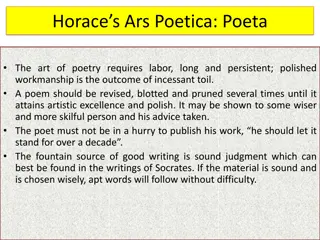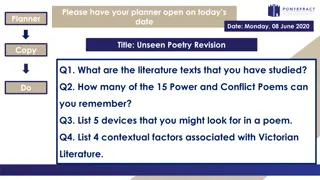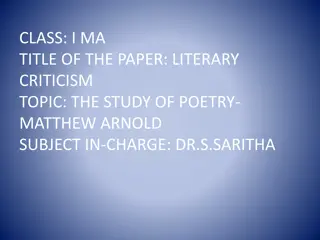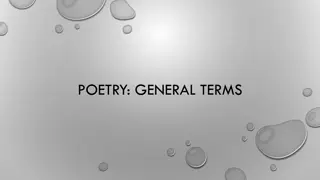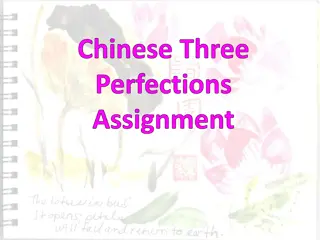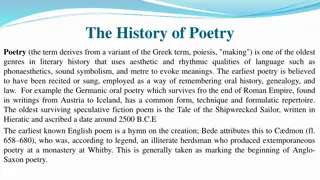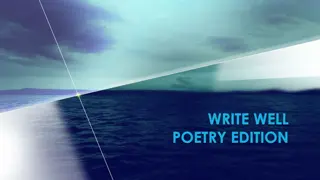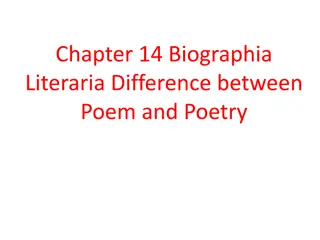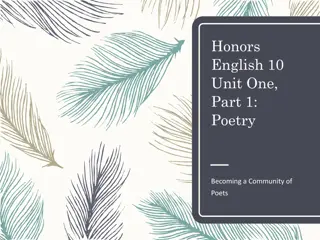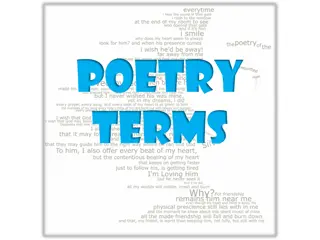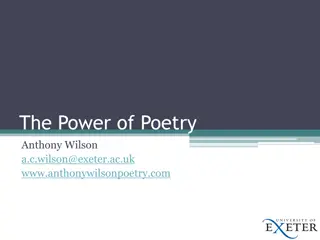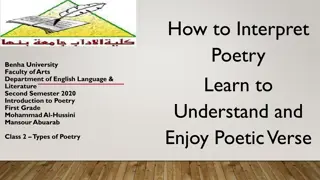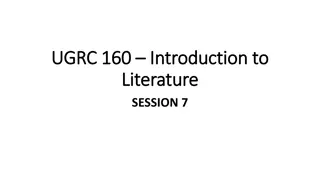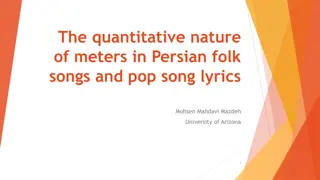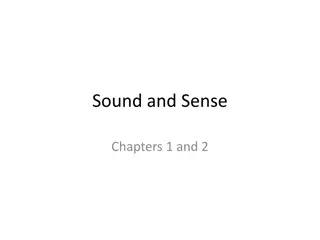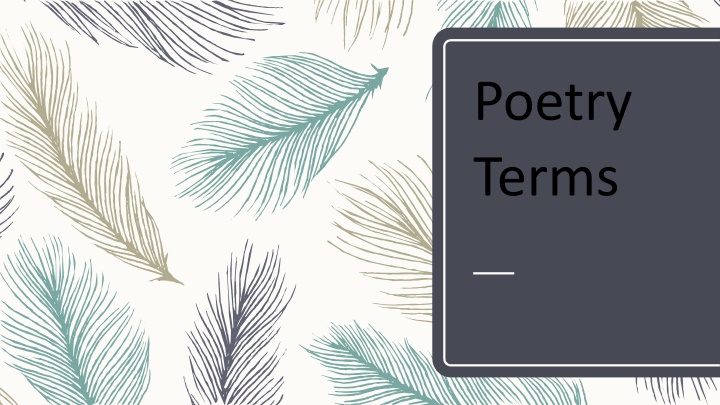
Exploring Poetry Terms and Literary Elements
Dive into the world of poetry with this comprehensive guide to common poetry terms and literary elements such as meter, rhyme, alliteration, and more. Learn about techniques like assonance, allusions, and extended metaphors, and discover different types of poems like ballads, blank verse, and epic poems. Enhance your understanding of poetry with detailed explanations and examples provided in this visually engaging resource.
Download Presentation

Please find below an Image/Link to download the presentation.
The content on the website is provided AS IS for your information and personal use only. It may not be sold, licensed, or shared on other websites without obtaining consent from the author. If you encounter any issues during the download, it is possible that the publisher has removed the file from their server.
You are allowed to download the files provided on this website for personal or commercial use, subject to the condition that they are used lawfully. All files are the property of their respective owners.
The content on the website is provided AS IS for your information and personal use only. It may not be sold, licensed, or shared on other websites without obtaining consent from the author.
E N D
Presentation Transcript
Poetry Terms
Poetry- a literary genre characterized by meter, rhyme, alliteration, literary elements, or a combination of these things.
Alliteration- two or more consecutive words with the same initial sound Example: Sarah saw several cats walking down the street. Example: Funny photos filled the pages.
Allusion- When a reference is made about someone/something not in the story.
Assonance- repeating vowel sounds; often creates a soothing effect Example: neck, met
Ballad- a narrative poem consisting of quatrains (stanza of 4 lines) Common elements include: 1. It often has an abrupt beginning 2. Story is told through dialogue and action 3. It has simple language 4. The theme is often tragic 5. Repeating lines and phrases
Blank Verse- a poem that does not rhyme
Companion Poems- Two poems that build upon the same topic/theme
Consonance- repeating consonant sounds Example: While I nodded, nearly napping, suddenly there came a tapping, as if someone gently rapping, rapping on my chamber door.
Couplet- two consecutive lines that rhyme.
Diction- word choice
Epic Poem- a type of narrative poem that tells the story of a hero.
Extended Metaphor- a metaphor that is extended throughout a poem
Free Verse- a poem with no rhythmic meter or rhyme scheme
Hyperbole- an exaggeration or overstatement Example: I slept a thousand hours last night.
Imagery- language that evokes one of the five senses: seeing, hearing, tasting, smelling, touching.
Lyric Poem- a short poem that expresses emotion.
Metaphor- comparison NOT using like or as ; created with to be verbs (is, are, was, were) Example: These biscuits are rocks.
Mood- the emotional atmosphere created by the author
Narrative Poem- a long poem that tells a story.
Onomatopoeia- when words imitate sounds Example: meow bing
Personification- giving human characteristics to inanimate objects (not human) Example: The trees danced in the breeze
Repetition- repeating lines or phrases
Rhyme Scheme- the rhyming pattern of a poem indicated with letters Example: abab
Simile- comparison using like or as Example: These biscuits are as hard as rocks
Sonnet- a 14-lined lyric poem that rhymes
Symbolism- when an object represents a larger idea or thought. Example: rain representing sadness
Theme- the general idea or insight about life that a writer wishes to express.
Tone- the author s attitude towards what he/she is writing. -The tone might be formal or informal, playful, ironic, optimistic, pessimistic, etc.



